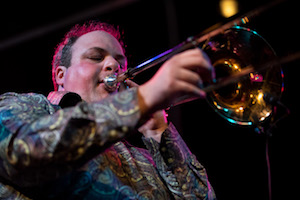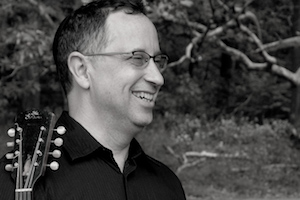Klezmer Education Symposium 2021
- Ilana Cravitz

- Mar 23, 2023
- 2 min read
Updated: Apr 28, 2023
KES took place 29-30 November 2021 Discussions | Panels | Working groups | Networking
Scores of musicians around the world from a variety of backgrounds are now working as klezmer educators.
This online Symposium, the first ever on this topic, covered various aspects of the diverse range of activities that take place under the ‘Klezmer Education’ umbrella, focusing mainly on teaching geared towards practical music-making.
The event aimed to provide a forum for the klezmer education community, along with our supporters and associates, to identify and explore how we might:
1. (better) articulate and communicate common goals;
2. share experiences and practices;
3. successfully enable klezmer educators to enter the field and develop; and
4. expand klezmer education in an accessible, coherent and cohesive, and appropriate and effective way.
Part of the goal was to tease out common elements to all klezmer education activities, vs what might be specific to teaching various levels of player, in different cultural contexts, for ensembles and individuals, in longer courses vs shorter workshops and so on.
Another was to explore which great ideas are replicable, which can work only under particular conditions, and which just came off because of a happy combination of circumstances. We also looked at how online opportunities can help with outreach and inclusion in our work.
Participants’ expertise and experience were elicited via presentations, panel discussions, working groups etc. Guest speakers and facilitators helped move the process forward, and contributions (ideas, resources and so on) were captured in various ways.
There were opportunities for structured and informal networking during breaks and at the end of each day. The programme is below.
Advisory panel
Richard Fay and Daniel Mawson (co-directors of The University of Manchester klezmer ensemble "Michael Kahan Kapelye", UK)
Deborah Strauss (violinist & educator, US)
Abigail Wood (University of Haifa, Israel)
Confirmed participants:
Aaron Alexander | Abigail Wood | Abigale Reisman | Adrianne Greenbaum | Alan Bern | Alicia Svigals | Andrea Pancur | Beth Cohen | Binyomin Ginzberg | Christina Crowder | Cookie Segelstein | Dan Blacksberg | Daniel Mawson | Deborah Strauss | Emil Goldschmidt | Emma Alter | Francesca Ter-Berg | Frank London | Geraldine Auerbach | Hankus Netsky | Ilana Cravitz | Jake Shulman-Ment | Cantor Jeff Warschauer | Jeyn Levison | Joel Rubin | Jordan Hirsch | Josh Horowitz | Judy Barlas | Kurt Bjorling | Lori Lippitz | Lorry Black | Mariko Mishiro | Merlin Shepherd | Michael Alpert | Nat Seelen | Nicole Borger | Pete Rushefsky | Rachel Lemisch | Richard Fay | Robin Seletsky | Rokhl Kafrissen | Cantor Sarah Myerson | Sebastian Shulman | Seth Rogovoy | Sherry Mayrent | Sruli & Lisa | Susan Lankin-Watts | Susi Evans | Szilvia Csaranko | Valeria Conte | Zev Feldman | Zilien Biret | Zisl Slepovitch | Zoe Aqua
Funding
This project has no external funding and the organisers are working in a voluntary capacity. Registration fees will cover some costs. Other contributions to support the project can be made via https://paypal.me/CravitzKlezmer, or via the Eventbrite ticketing. To contribute via bank transfer or visa payment, please email ilanacravitz@gmail.com.
The event has been devised and organised by the London International Klezmer Experience (LIKE).
PROGRAMME
Day 1 - Monday 29 November
Welcome & introductory remarks |
Session 1: Klezmer music Is.... [part 1] Presentations, round table discussion, audience questions & observations Our panellists talk about what 'klezmer' means to them and describe how this influences their work, from instrumental teaching and talking about klezmer, to researching, composing and programming. We’ll set this against external perspectives of klezmer, reflect on the implications, and set the scene for our discussions about how to shape the future. Audience questions and observations will be welcome after the discussion. Session chair Rokhl Kafrissen Panel Alan Bern, Dan Blacksberg, Deborah Strauss, Mariko Mishiro |
BREAK |
Session 2: Trusted sources & resources Working groups, plenary Working groups will start by discussing the resources participants use to inform and inspire themselves as klezmer educators, and as the discussion develops compile a ‘reading list’ to use/consult when teaching practical klezmer that includes sources, resources, people to study with, and festivals/workshops to attend. A ‘wish list’ from gaps identified during the discussion will also emerge. The groups are organised roughly by instrument family. The plenary at the end will pull together similar themes and identify novel avenues. Working groups a) Brass plus b) Drums/percussion plus c) Keyboards plus d) Strings plus e) Winds plus Session chair Francesca Ter-Berg Working group facilitators Brass plus - Susan Lankin Hoffman-Watts Drums/percussion plus - Aaron Alexander Keyboards plus - Christina Crowder Strings plus - Jake Shulman-Ment. Key contributor: Francesca Ter-Berg Winds plus - Nat Seelen |
BREAK Feldenkreis with Emma Alter - 15 minutes of chair exercises. |
Session 3: Repertoire for teaching Quiz Panellists play snatches of their favourite teaching tunes live for their colleagues to guess and complete. Each will discuss the reasons for their choices, helping to contribute to the 'which & why' list of great teaching tunes in our Virtual Knowledge Data Bank. Quizmeister Merlin Shepherd Panel Jeff Warschauer, Marthe Derosieres, Rachel Lemisch, Sherry Mayrent |
BREAK |
Session 4: Shaping & guaranteeing the future of klezmer education in various contexts Scene-setting, working groups, plenary This session is about stimulating & developing klezmer teaching & teachers, and the working groups will discuss consolidation, recruitment, engagement, retention, and continuity in and for the klezmer world.
Session chair - Jeyn Levinson Key contributors: Geraldine Auerbach, Nicole Borger (by video) Working groups a) Further & higher education - Failitator: Lorry Black b) Festivals that include a substantial teaching programme - Facilitator: Sebastian Shulman c) Online/non-specific klezmer programmes - Facilitator: Robin Seletsky d) Community music-making - Facilitator: Judy Barlas. Key contributor: Gica Loening e) Teaching young people - Facilitators: Sruli & Lisa. Key contributors: Ilana Cravitz, Emil Goldschmidt f) Nurturing the klezmer educators of the future - Facilitator: Zoe Aqua |
BREAK |
Summary of Day 1 Plenary |
Networking / Schmoozing Breakout rooms provided |
Day 2 - Tuesday 30 November
Tuesday 30 November
Welcome & scene-setting for Day 2 |
Session 1: Klezmer music Is.... [part 2] Presentations, round table discussion, audience questions & observations Is ‘klezmer’ a genre, a language, a musical culture, or something else? Can we reduce klezmer music to a set of musicological characteristics that can be taught? How does it sit within / relate to other musics? How important is it to include related Yiddish cultural elements, and history/culture in teaching klezmer music? The panel will make short presentations detailing their perspectives and discuss these and related questions with reference to their work in klezmer as educators, composers, researchers, programmers and more. Audience questions and observations will be welcome. Session chair - Pete Rushefsky Panelists - Hankus Netsky, Alicia Svigals, Jordan Hirsch Key contributors - Seth Rogovoy, Zilien Biret, Michael Alpert |
BREAK |
Session 2: Klezmer Pedagogy Working groups, plenary
Session chair Cookie Segelstein
A chance to share knowledge in some specific areas of klezmer education. Each working group will bear in mind resources and opportunities to help klezmer educators develop the particular aspects of teaching under discussion, including what is currently, could, or should be offered.
Working groups, facilitators and key contributors a) Developing as a klezmer educator
Working group facilitator Andrea Pancur b) Incorporating Yiddish cultural elements into klezmer teaching The session is intended to highlight the ways in which klezmer educators incorporate elements such as nigunim, Yiddish dance and language into klezmer teaching in lessons, classes, workshops and courses. Please come prepared to discuss:
Working group facilitators Deborah Strauss, Jeff Warschauer Key contributor Zisl Slepovitch c) Klezmer as a modal music The potentially controversial topic of whether and how we bring awareness of the modal nature of klezmer music into practical klezmer teaching will be addressed in this working group. After some initial contributions from guest speakers, participants will be invited to share their viewpoints, teaching techniques and resources/materials. Working group facilitator Josh Horowitz Key contributors Kurt Bjorling, Cantor Sarah Myerson, Binyomin Ginzberg d) Preparation vs execution in klezmer This working group is about recognising and reacting to students’ needs in practical klezmer music-making sessions. Some teachers prepare a class carefully and find it hard to adapt when things don’t go as planned. Others seem to magically ‘wing it’, adapting in the moment and somehow making sure everyone has a good time and the group comes up, collectively, with the goods. The aim of the working group is to assemble a set of principles and tips which help klezmer teachers to prepare for winging it. Examples of discussion points are:
Working group facilitators Frank London Key contributor Adrianne Greenbaum |
BREAK Feldenkreis with Emma Alter - 15 minutes of chair exercises. |
Session 3: Shaping practical klezmer teaching programmes /courses Working groups, plenary Session chair - Joel Rubin This slot is about planning practical klezmer music programmes. In the working groups participants will share experiences, outlines, materials etc. and consider the following questions:
Working groups, facilitators, and key contributors a) Longer programmes for young pros/higher level players - Facilitators: Daniel Mawson, Richard Fay b) Programmes for (mainly) adult amateurs - Facilitator: Valeria Conte. Key contributors: Susi Evans, Szilvia Csaranko c) Kids’ programmes - Facilitator: Lori Lippitz d) Week-long courses as part of festivals - Facilitator: Abigale Reisman Key contributor: Ilya Shneyveys |
BREAK |
Summary of Symposium, future directions & next steps Plenary |
Networking / Schmoozing Breakout rooms provided |



























Comments